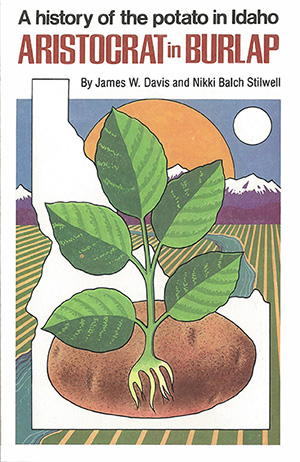Potato breeding at Aberdeen in a joint USDA-U of I program has resulted in the release of new varieties for potato chips, early processing use and early fresh market sales. To date, however, the one "super potato" that could equal or exceed the Russet Burbank in quality and be easier and more profitable to grow has eluded the breeders. Genetic engineering might yet provide the means to achieve that goal by the selective improvement of Luther Burbank's masterpiece.
Extension potato specialists, funded jointly by the U of I and the Idaho Potato Commission (IPC), have done much to assist growers with cultural problems and make research information available. The annual potato school sponsored by the university and held each year in Pocatello, which is routinely attended by growers from all over the U. S. and Canada, has also been effective in imparting knowledge gained from research activities.
The grower segment of the industry has always looked with hope to potato research, including the development of new potato varieties, for solutions to their growing, storage and marketing problems. In 1976, a movement was started to purchase a 120-acre farm with a sprinkler system already in place adjacent to the University of Idaho Research and Extension Center at Aberdeen to provide more land for the breeding and variety development program.
The IPC contributed money from research and education funds, which was supplemented by a legislative appropriation and the farm was purchased for $360,000. The potato-breeding program at Aberdeen was greatly expanded when the new acreage became available.
The most recent addition to Idaho research capability is a state-of-the-art storage facility built in 1991 and located at Kimberly, Idaho. Individual storage bins are completely isolated from each other and provided with environmental controls to simulate any desired storage condition. The building was made possible by industry donated funding and R and E funds from the IPC.
The process of selecting research projects involves the entire Idaho potato industry, which makes needs known through the Research and Education Committee. Research proposals submitted by the University of Idaho and other research organizations are evaluated by the R and E Committee, which is composed of two IPC members, the Commission executive director, and nine people representing major-interest areas in the industry.

